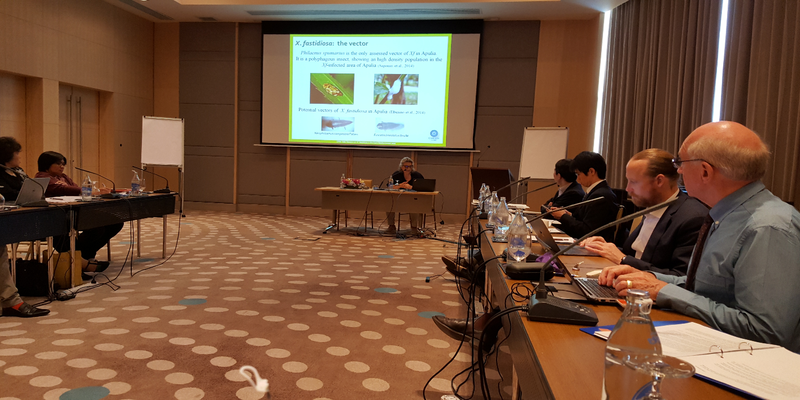Working towards a stronger focus on IPPC Implementation: the Working Group on the Pilot Project on Surveillance convened
Posted on Thu, 30 Jun 2016, 10:22

The Informal Working Group on the IPPC Implementation Pilot Project on Surveillance, attended by 13 plant pest surveillance experts, was held in Bangkok Thailand on 11th - 12th of June 2016. Organized by the APPPC with the cooperation of the Republic of Korea, the meeting brought together representatives from Australia, Brazil, Japan, The Republic of Korea, New Zealand, Thailand, EPPO, CIHEAM, the FAO Regional Office for Asia and the Pacific, and the IPPC Secretariat.
What is the IPPC Implementation Pilot on Surveillance?
The pilot project on surveillance aims to draw together pest surveillance managers and experts to exchange experiences, discuss challenges, showcase best practices and coordinate the development of pest surveillance products that are globally relevant and valuable. The pilot project will leverage past and existing surveillance work, and intends to initiate new and more integrated processes to provide useful information on emerging pests and ultimately prevent the introduction and spread of plant pests.
Key issues and Actions of the Informal Working Group Meeting
It was decided during CPM-11 that the pilot project would initially focus on three example pests with wide-ranging potential impact on agriculture and trade. Pests for consideration were Xylella fastidiosa, Bactrocera dorsalis Complex and invasive ants. Participants came to the meeting having previously collected and reviewed information and resources like manuals, case studies, standard operating procedures, etc. regarding the proposed pests.
Working Group participants reviewed materials and identified gaps and tools in surveillance for each of the three pests. Through this process, group participants agreed that the selected pests were relevant to the pilot project and determined the most suitable stakeholders who could best champion pest surveillance for each pest. It was agreed that champions would play an active role in undertaking activities with the IPPC Secretariat providing overall coordination to ensure coherence and wide dissemination of outputs.
The discussions were fruitful with several follow-up activities planned for the future, including:
- a page on the phytosanitary.info webpage that will publish the most relevant resources for each of the three selected pests;
- a factsheet for each pest, to be available electronically and distributed during CPM-12;
- events related to surveillance to be advertised on the event section of the Phytosanitary.info website;
- for Xylella fastidiosa, the development of a training module on survey and diagnostic methods as well as advocacy material to be provided to regions and countries.
Once finalized the report from the meeting will be posted here.

